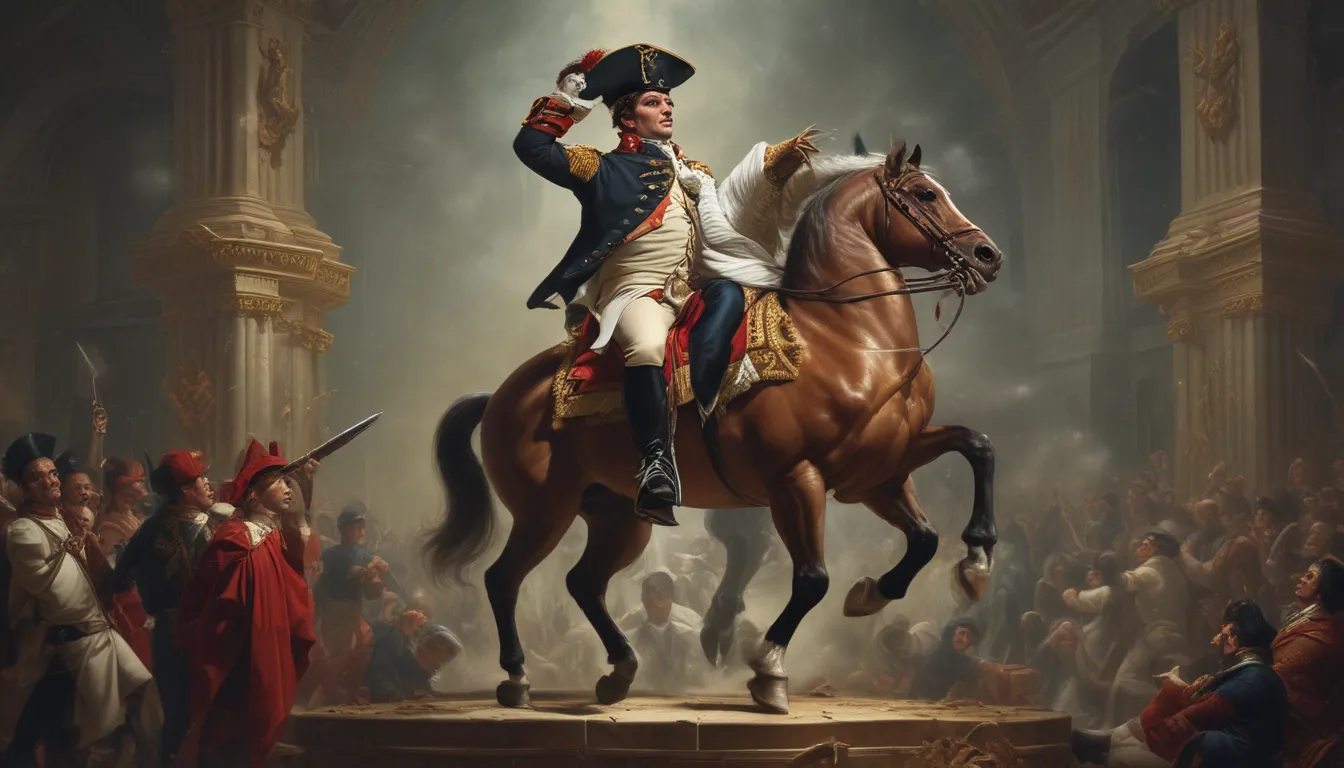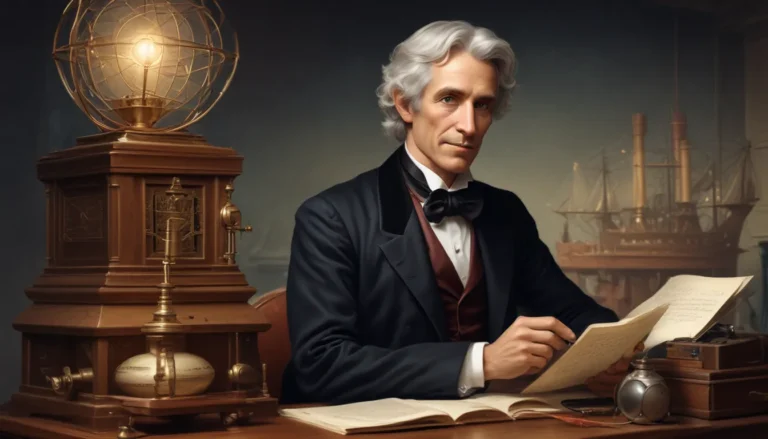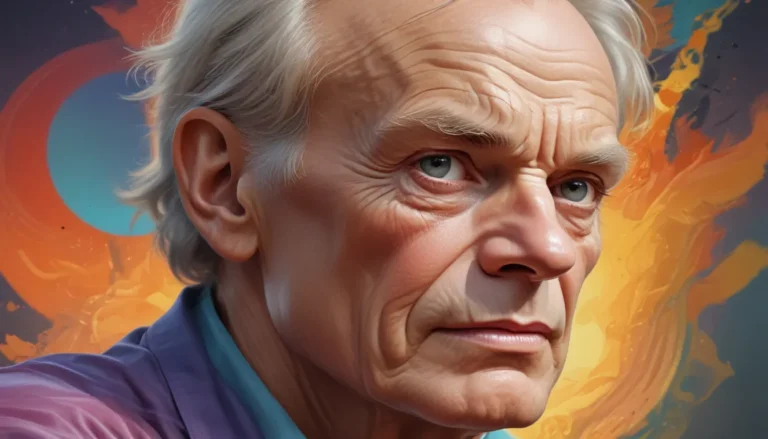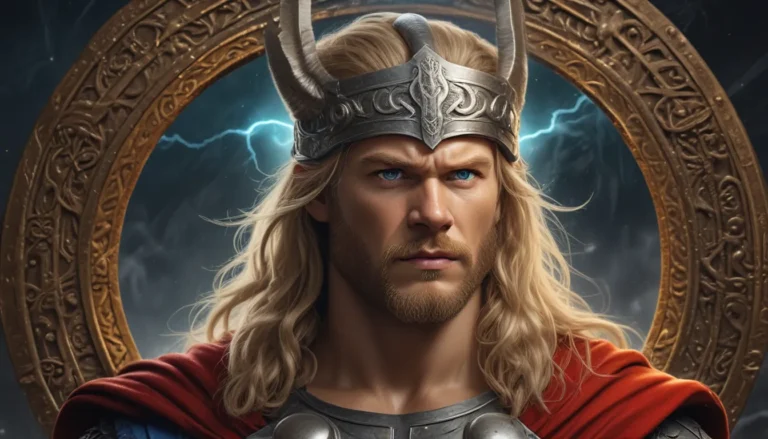The images in our articles may not match the content exactly. They are used to grab your attention, not to show the exact details in the text. The images complement the text but do not replace it.
When it comes to iconic figures in history, few can rival the enigmatic Napoléon Bonaparte. This French military and political leader made a profound impact on the world, shaping the course of European history and leaving behind a legacy that continues to intrigue historians and enthusiasts to this day. Known for his strategic brilliance, ambitious nature, and controversial reign, Napoléon remains a complex and captivating figure whose life is filled with fascinating facts waiting to be explored.
Exploring the Remarkable Life of Napoléon Bonaparte
Napoléon Bonaparte was born in 1769 in Corsica, setting the stage for a journey that would redefine the boundaries of power and influence in Europe. From his humble beginnings to his meteoric rise as one of history’s most influential figures, Napoléon’s life is a tapestry woven with triumphs, setbacks, and enduring legacy.
The Rise of a Military Prodigy
From a young age, Napoléon displayed a remarkable talent for military strategy. His strategic brilliance propelled him through the ranks of the French army during the turbulent times of the French Revolution, ultimately establishing him as a formidable force to be reckoned with on the battlefield. With unwavering determination and unmatched leadership skills, Napoléon’s ascendancy was nothing short of extraordinary.
Napoléon Bonaparte: The Emperor and Reformer
After a series of decisive military victories, Napoléon declared himself Emperor of the French in a bold move that reshaped the political landscape of Europe. His reign was marked by sweeping reforms, including the implementation of the Napoleonic Code, a groundbreaking legal system that had a profound and lasting impact on European jurisprudence. Napoléon’s rule brought significant social and political changes to France, solidifying his position as a powerful and transformative leader.
The Military Triumphs and Legacy of Napoléon Bonaparte
Napoléon’s military campaigns were characterized by daring tactics and strategic brilliance that set him apart as a military genius. From the audacious Egyptian campaign to the historic Battle of Waterloo, Napoléon’s conquests expanded the French Empire, redrawing the boundaries of Europe and shaping its geopolitical landscape. His legacy as a formidable military leader continues to inspire awe and admiration, leaving an indelible mark on the annals of history.
Unveiling the Enigmatic Persona of Napoléon Bonaparte
Behind the facade of power and conquest lies a man shrouded in mystery, whose enigmatic nature continues to captivate the imagination of people worldwide. Delving into the lesser-known facets of Napoléon’s life reveals a complex and multifaceted individual whose legacy transcends time and borders, leaving a legacy that is as intriguing as it is enduring.
The Exile and Demise of Napoléon Bonaparte
Following his fateful defeat at the Battle of Waterloo in 1815, Napoléon was exiled to the remote island of Saint Helena, where he spent his final years in seclusion. Reflecting on his tumultuous reign and contemplating his legacy, Napoléon’s exile marked the end of an era that had reshaped the course of European history. His passing on May 5, 1821, heralded the conclusion of a chapter that had left an indelible mark on the world.
The Legend Lives On: Napoléon Bonaparte in Popular Culture
Napoléon’s larger-than-life persona continues to inspire artistic interpretations and cultural representations that capture the essence of his enduring legacy. From books to movies, his life has been immortalized in various forms, each offering a unique perspective on the enigmatic figure who reshaped the course of history. Napoléon’s legend lives on, captivating audiences and fueling debates about his lasting impact on the world.
The Enduring Influence of Napoléon Bonaparte
Napoléon’s rule left a profound and lasting impact on Europe, shaping the modern political landscape of several nations. His military conquests and far-reaching reforms laid the foundation for a new era of governance and societal transformation, setting the stage for future developments in the region. The legacy of Napoléon Bonaparte endures as a testament to his vision, ambition, and enduring influence on history.
Unraveling the Myths and Facts Surrounding Napoléon Bonaparte
As with any historical figure of such magnitude, Napoléon Bonaparte’s life is shrouded in myths and misconceptions that often obscure the true nature of his legacy. Separating fact from fiction is essential in understanding the complexities of this enigmatic figure and appreciating the full scope of his impact on the world.
The Height Controversy: Setting the Record Straight
One of the enduring myths surrounding Napoléon Bonaparte is the debate over his height. Contrary to popular belief, Napoléon was not unusually short for his time, with records indicating that he stood at an average height for men of his era. The confusion surrounding his height stems from discrepancies in unit conversions, leading to misconceptions about his stature that persist to this day.
Napoléon’s Personal Life: Marriage and Family
Napoléon’s personal relationships provide insight into the man behind the myth, shedding light on his emotional depth and complexity. His marriages to Joséphine de Beauharnais and Archduchess Marie Louise of Austria highlight the dichotomy of his public and private personas, revealing a man torn between duty and personal desire. The legacy of his familial ties endures, shaping his personal narrative and adding a layer of complexity to his enigmatic character.
Exploring Napoléon Bonaparte’s Enduring Legacy
As we unravel the enigmatic tapestry of Napoléon Bonaparte’s life, we gain a deeper appreciation for the complexities of his character and the enduring impact of his legacy. From his rise to power to his tumultuous reign and eventual downfall, Napoléon’s journey is a testament to the power of ambition, leadership, and historical significance that continues to resonate with audiences around the world.
Napoléon’s Influence on Art and Culture
Beyond his military conquests and political reforms, Napoléon’s impact extended to the realms of art and culture, where his patronage and promotion of the arts left an indelible mark on the creative landscape of his time. Artists such as Jacques-Louis David immortalized him in their works, contributing to a romanticized image of Napoléon that persists in popular culture to this day. His architectural commissions, including the iconic Arc de Triomphe, stand as enduring symbols of his grandeur and legacy.
Napoléon’s Downfall and Legacy
Napoléon’s downfall came with his ambitious campaign to conquer Russia, a strategic blunder that ultimately led to his defeat and subsequent exile. Despite his dramatic exit from the stage of power, Napoléon’s legacy as a military genius and transformative leader endures, shaping historical narratives and inspiring ongoing debates about his enduring influence on the world.
Conclusion: The Enigmatic Legacy of Napoléon Bonaparte
In conclusion, the enigmatic figure of Napoléon Bonaparte remains a captivating and enduring presence in the annals of history. From his rise to power to his far-reaching reforms and complex personality, Napoléon’s legacy is as multifaceted as it is enigmatic, leaving a lasting impact on the world that continues to inspire and intrigue audiences worldwide. As we delve deeper into the mysteries of his remarkable life, we uncover a man whose influence transcends time, leaving an indelible mark on the course of history.
FAQs: Exploring Napoléon Bonaparte
Curious minds seeking to unravel the mysteries of Napoléon Bonaparte often have questions about his life, reign, and enduring legacy. Here, we address some of the most frequently asked questions about this enigmatic historical figure, shedding light on the complexities of his character and the profound impact of his legacy on the world.
Was Napoléon Bonaparte’s height really as short as commonly believed?
Contrary to popular belief, Napoléon’s height was not significantly below average for his time. While his recorded height of 5 feet 6 inches may seem short by modern standards, it was actually close to the average height of Frenchmen during the late 18th and early 19th centuries.
How did Napoléon rise to power and declare himself Emperor of the French?
Napoléon’s rise to power was fueled by a combination of military triumphs and political maneuvering, culminating in his declaration as Emperor of the French in 1804. His strategic brilliance and decisive leadership set him apart as a transformative figure in European history.
What reforms did Napoléon implement during his reign as Emperor of the French?
Napoléon introduced a series of far-reaching reforms during his reign, including the Napoleonic Code, which standardized laws and promoted equality before the law. He also implemented educational reforms, centralized administration systems, and the Metric System, leaving a lasting impact on European governance and legal systems.
How did Napoléon Bonaparte’s reign come to an end?
Napoléon’s reign came to a dramatic close with his defeat at the Battle of Waterloo in 1815, leading to his subsequent exile to the island of Saint Helena. He spent the remainder of his life in isolation, reflecting on his legacy and contemplating the impact of his tumultuous reign on the course of history.
What was Napoléon’s enduring legacy on Europe and the world?
Napoléon’s legacy is a subject of ongoing debate, with some praising his reforms and military conquests while others criticizing his authoritarian rule and the suffering it caused. His influence on Europe’s political landscape and legal systems continues to be felt, shaping the modern world in ways that resonate with the echoes of his ambitious reign.
As we unravel the enigmatic tapestry of Napoléon Bonaparte’s life, we uncover a man whose legacy transcends time and borders, leaving an indelible mark on the world that continues to inspire and intrigue audiences worldwide. From his rise to power to his tumultuous reign and eventual downfall, Napoléon’s journey is a testament to the enduring power of ambition, leadership, and historical significance that continues to resonate with audiences across the globe.






